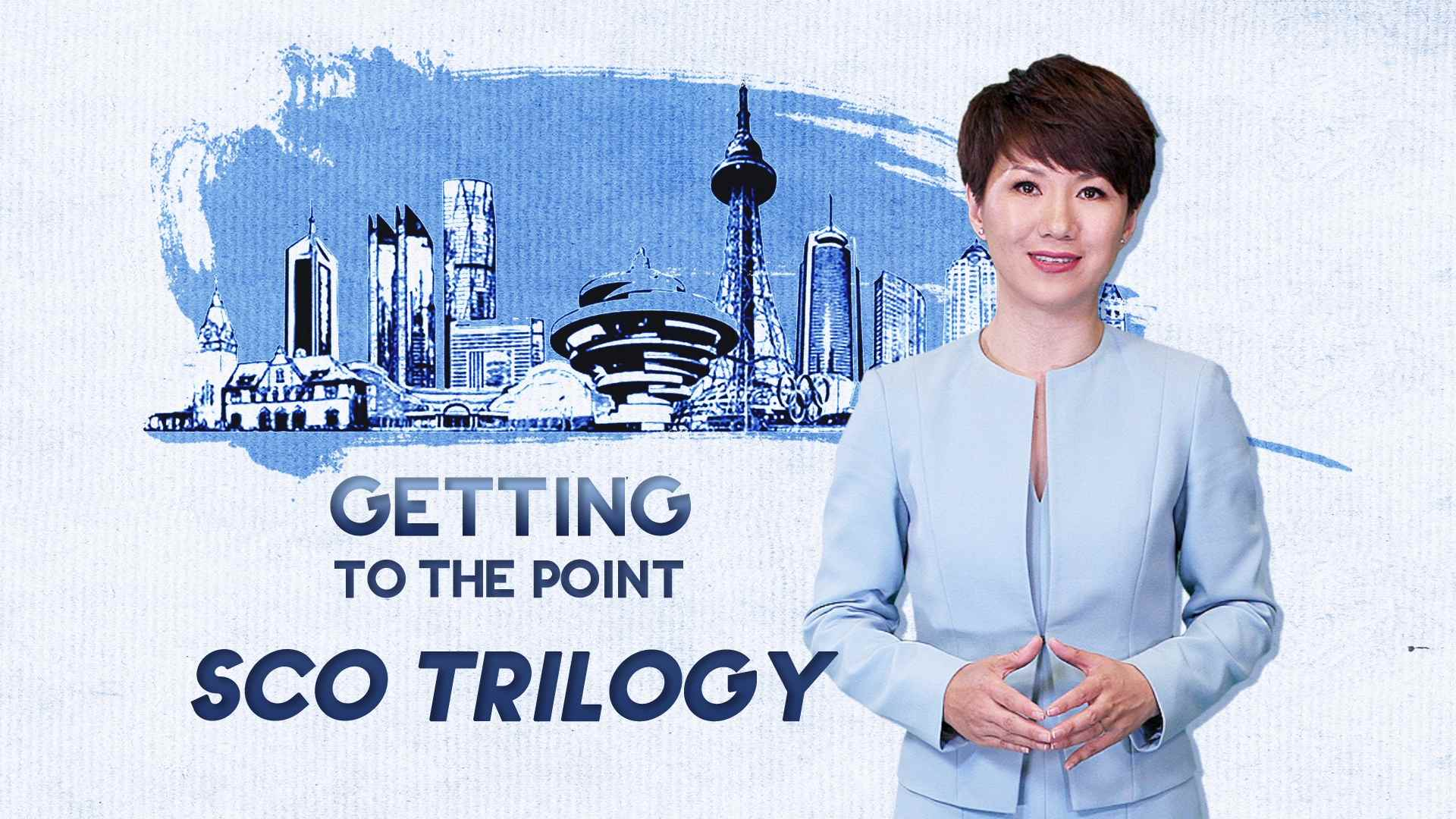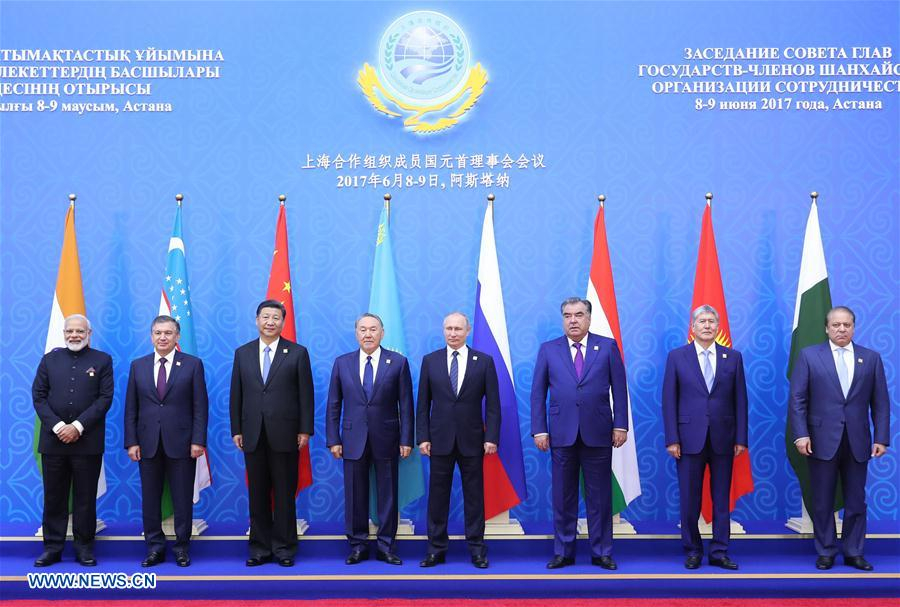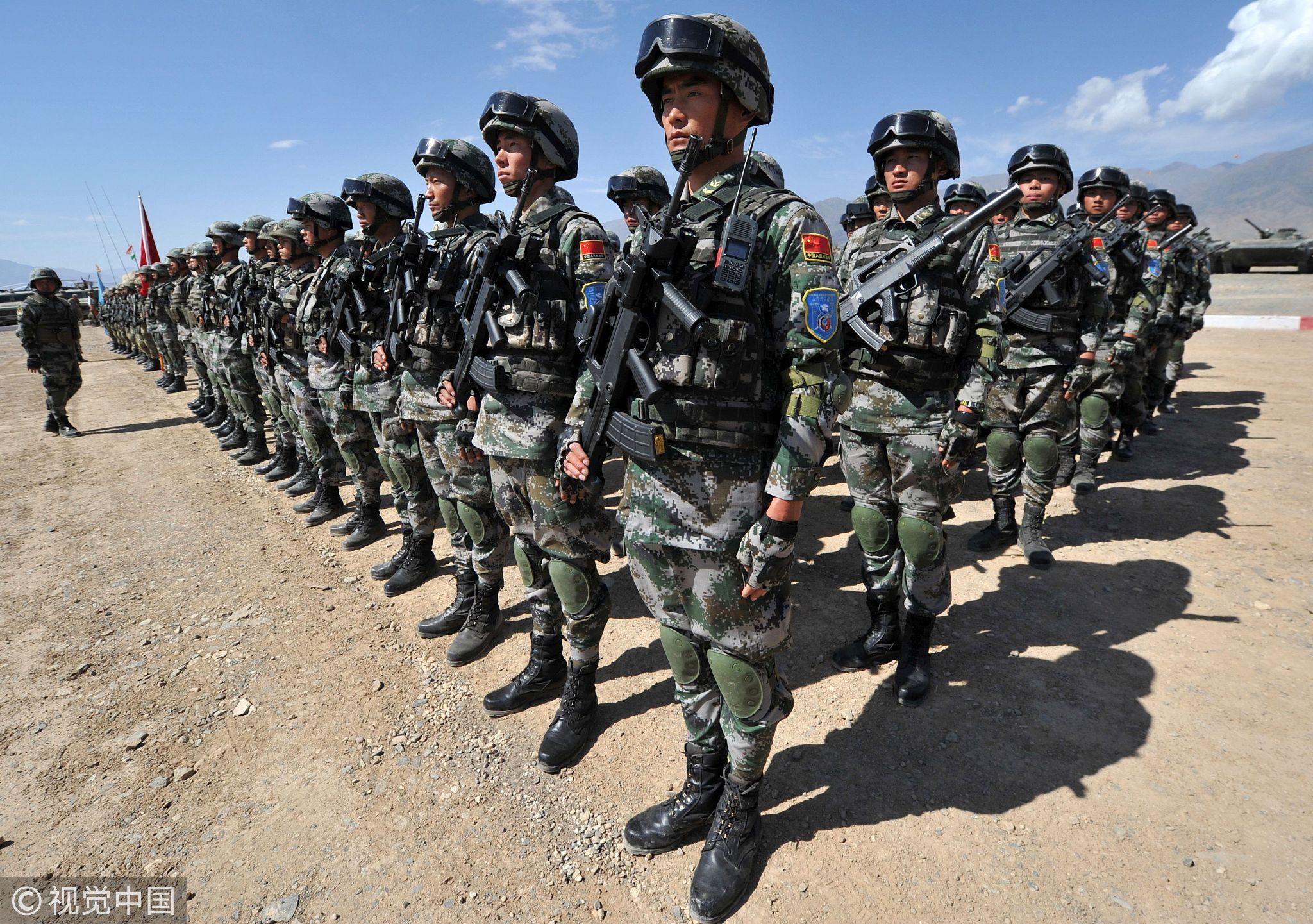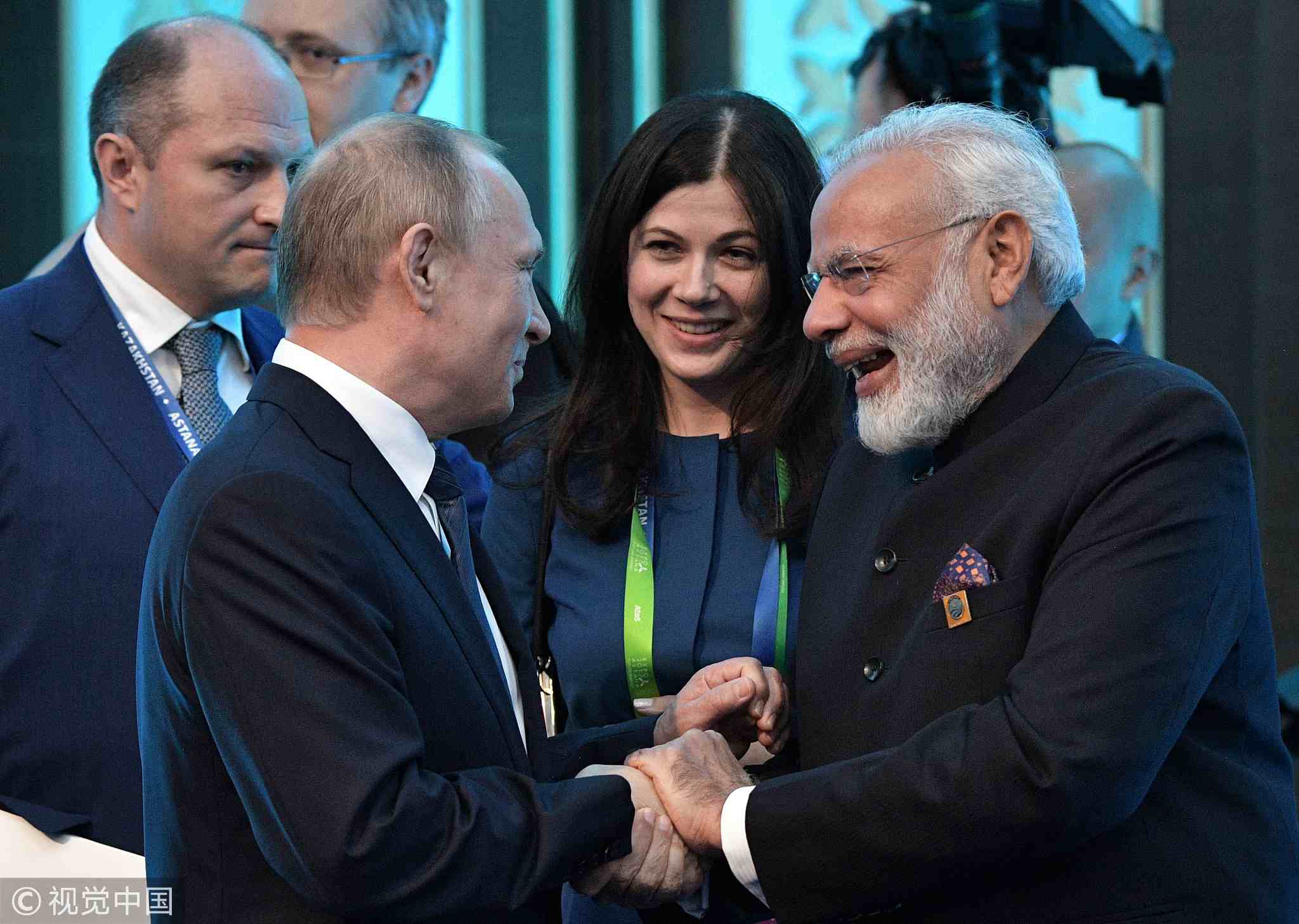04:52

Imagine a regional organisation in the heart of Asia whose members account for one fifth of global GDP, two fifths of the world’s population, and three fifths of the Eurasian landmass.
Such is the combined heft of the Shanghai Cooperation Organisation’s (SCO) eight full members: China, India, Kazakhstan, Kyrgyzstan, Pakistan, Russia, Tajikistan and Uzbekistan.
The group also has 4 observers - Mongolia, Iran, Afghanistan and Belarus; and 6 dialogue partners - Turkey, Sri Lanka, Nepal, Cambodia, Azerbaijan and Armenia. Taking these into consideration, the SCO makes up over 45% of all the people on Earth and 70% of the Eurasian landmass.
With the 18th summit looming in the eastern Chinese city of Qingdao, questions naturally emerge as to what the SCO is all about: Is it intended to oppose the Western order? Is it the NATO of the East? With the inclusion of India and Pakistan as full members last year, is the group driven by larger geopolitical ambitions?

June 9, 2017: Chinese President Xi Jinping (3rd L), leaders of other SCO member states and prime ministers of India and Pakistan pose for a group photo during the 17th meeting of Council of Heads of State of the SCO in Astana, Kazakhstan. /Xinhua Photo
June 9, 2017: Chinese President Xi Jinping (3rd L), leaders of other SCO member states and prime ministers of India and Pakistan pose for a group photo during the 17th meeting of Council of Heads of State of the SCO in Astana, Kazakhstan. /Xinhua Photo
In the three-part series, let me try to address the questions and the concerns behind them.
Is the SCO seeking to disrupt or replace the Western order?
After the collapse of the former Soviet Union, a number of new nations emerged in Central Asia. National reconstruction, redefining borders and re-convergence of ethnic groups brought security threats in border areas.
In 1996, China, Kazakhstan, Kyrgyzstan, Russia, and Tajikistan formed the Shanghai Five to promote regional peace.
In 2001, Uzbekistan joined, and the group was renamed the Shanghai Cooperation Organisation.
In 2017, India and Pakistan became official members, bringing the total number of members to 8.
The primary goals of this group were to reduce the risk of conflict between SCO member states and jointly fight the “three evils”: terrorism, extremism, and separatism.

September 19, 2016: Chinese soldiers stand at attention during Peace Mission-2016 joint military exercises of the SCO in the Edelweiss training area in Balykchy some 200 km from Bishkek. /VCG Photo
September 19, 2016: Chinese soldiers stand at attention during Peace Mission-2016 joint military exercises of the SCO in the Edelweiss training area in Balykchy some 200 km from Bishkek. /VCG Photo
To achieve those goals, the SCO adopted a groundbreaking philosophy.
“Mutual trust, mutual respect, equality, respect for diverse civilizations, and pursuit of shared development.” These are the key words that make up the “Shanghai Spirit.”
Each SCO member has an equal say in this forum. Decisions are made through consensus and the diversity and the interests of each member are respected, a departure from the zero-sum mentality that defined Cold War-era military alliances such as NATO or the former Warsaw Pact.
The SCO does seek to establish a new international order. Yet it does not want to do so by starting a new one from scratch, but rather by reforming the existing one.
SCO members believe that “might is not always right”; sovereignty matters, and confrontation poisons international relations.

June 9, 2017: Russian President Vladimir Putin (L) talks with Indian Prime Minister Narendra Modi (R) at the expanded format meeting of the Council of Heads of State of the SCO. /VCG Photo
June 9, 2017: Russian President Vladimir Putin (L) talks with Indian Prime Minister Narendra Modi (R) at the expanded format meeting of the Council of Heads of State of the SCO. /VCG Photo
With a lineup of all developing countries, the SCO wishes to amplify their voices and their influence on global governance. The path towards that goal is via consultation, in close partnership with the United Nations under the current order.
Looking to the future, the SCO has endorsed the concept of building a human community of a shared future for mankind as its guiding principle. Another common concern relates to the SCO joint military exercises.
In recent years, SCO members have carried out numerous joint military exercises, such as the Peace Mission series, involving thousands of troops and advanced equipment from member countries. These drills have concerned some Western observers.
So is the SCO the NATO of the East? I will explain in the next episode.
I’m Liu Xin. Follow me on Facebook or Twitter using the handle @thepointwithlx. Thanks for watching.





